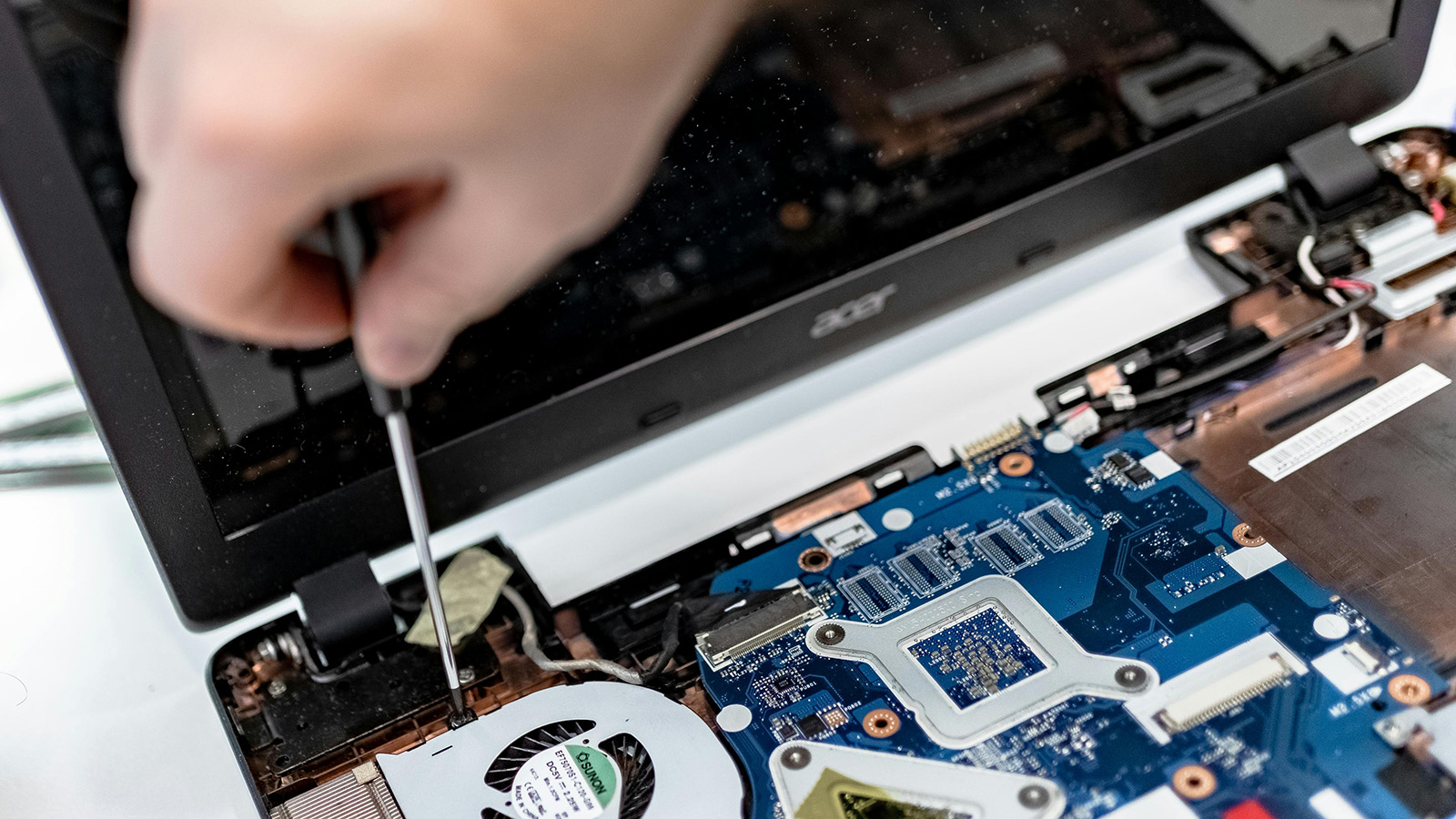My case to the Colorado Legislature for Right to Repair
Colorado’s Right to Repair bill, HB21-1199, is up in the House Business Affairs and Labor Committee. Here’s what I’m going to say to convince them to vote yes.
When our devices break, we should be allowed to fix them. From cell phones to tractors to electric wheelchairs, we can’t have our electronics go down for long periods of time.
Going without our electronics doesn’t just mean that we can’t text our friends for a while. In a time dependent on digital technology, it means we can’t attend remote work or school meetings, harvest crops, or get around in ways that are recommended by our doctor. It’s not just a matter of convenience, but it can deeply affect our livelihoods.
Being able to fix our electronics quickly can also save us money. Data shows that the average American family spends over $1,400 per year on replacing our electronics.
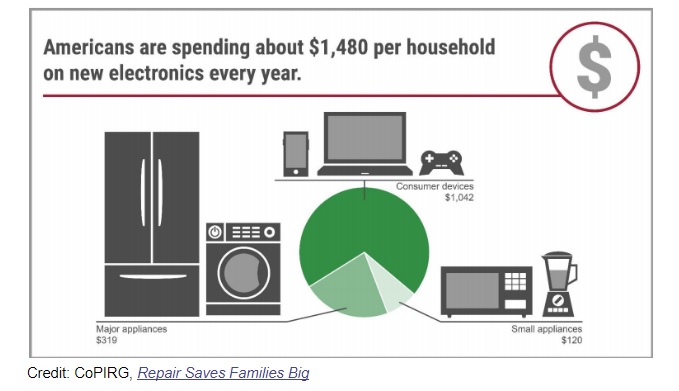
If we were able to fix our stuff, each family would save about $330 per year. That means Colorado families would collectively save over $700 million each year.
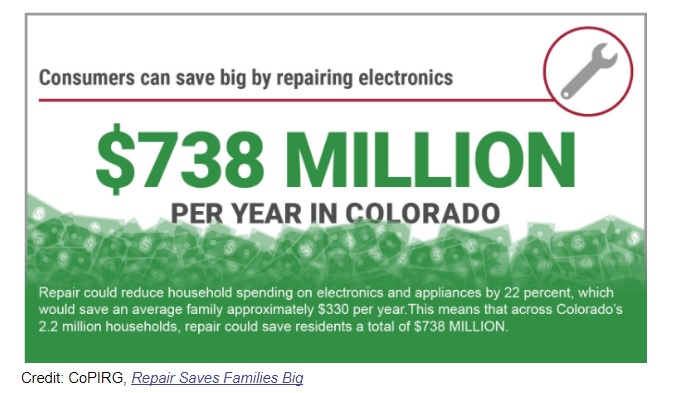
Repairing electronics has other benefits. It’s good for the planet. According to the World Economic Forum, electronic waste is the fastest growing waste stream on the planet. In Colorado, we try to do our part to help the planet, but when our electronics are not made to be fixed and companies that make them put up unnecessary barriers to fixing them, it’s hard for us to treat our devices like anything but disposable objects. It doesn’t help that many carriers encourage you to get a new cell phone every two years when modern smartphones can last over four years.
Our cell phone habit hurts the planet. Americans buy 161 million smart phones each year. If we used our smart phones for one year longer, it would have the same effect on the planet as taking over 600,000 cars off the road and cutting a jumbo jet’s weight of raw material use every 17 minutes.
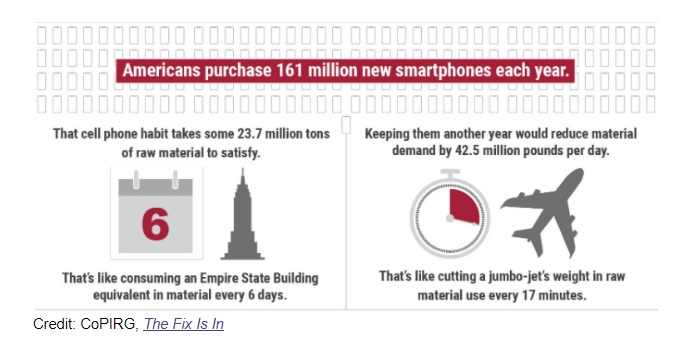
But Coloradans are trying to fix our stuff. We don’t want to treat our electronics like disposable objects. That’s why, last year, over 1 million unique users in Colorado visited iFixit.com, a single do-it-yourself website that has thousands of repair guides to help us fix our electronics.

CoPIRG broke down what devices we tried to fix last year, what went wrong with the devices that made us want to fix them, and what companies made those devices.
Overwhelmingly, we wanted to fix consumer electronics, like cell phones, computers and tablets.
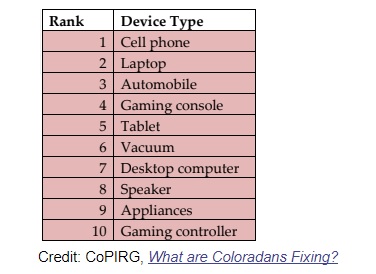
We most often wanted to change our batteries, especially in our laptops and cell phones.
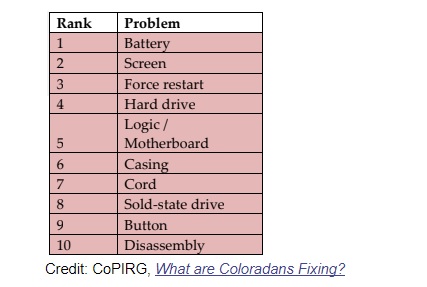
So changing batteries seems like a pretty simple task – at least it was back in the day when our phones and computers had batteries you could easily pop out. But batteries now can be glued into devices or protected by a panel that you need a special screwdriver for, but the company that makes the device won’t sell you that screwdriver.
We looked at the top ten companies that make the electronics that we wanted to fix last year and found that six of them put up unnecessary barriers to fixing our devices.
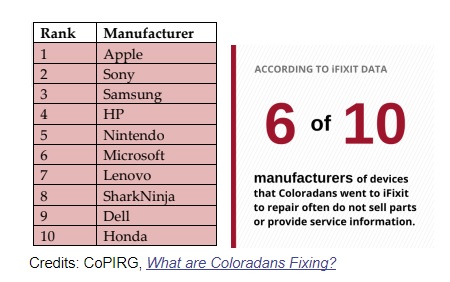
Fixing our stuff shouldn’t make us jump through a lot of hoops, but as our stuff gets more digital, the hoops we have to jump through get higher and higher. Especially when authorized dealers don’t have to jump through these hoops.
Fixing our stuff used to be as simple as taking our toolbox out of the garage, and we need to get back to that. That’s why we and 50 repair shop owners and farmers are calling on legislators to pass HB21-1199, the Consumer Digital Repair Bill of Rights. It would give consumers and independent repairers access to the parts, tools, diagnostics, and manuals necessary to repair their devices, which authorized dealers already have access to.

Topics
Authors
Allison Conwell
Find Out More
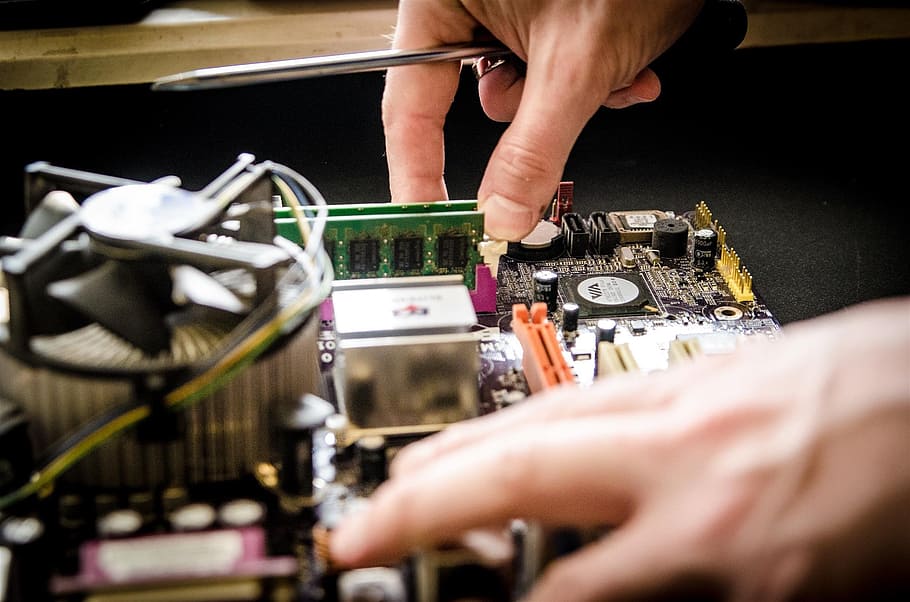
How Colorado’s Right to Repair bill protects choice, saves people money and protects the environment
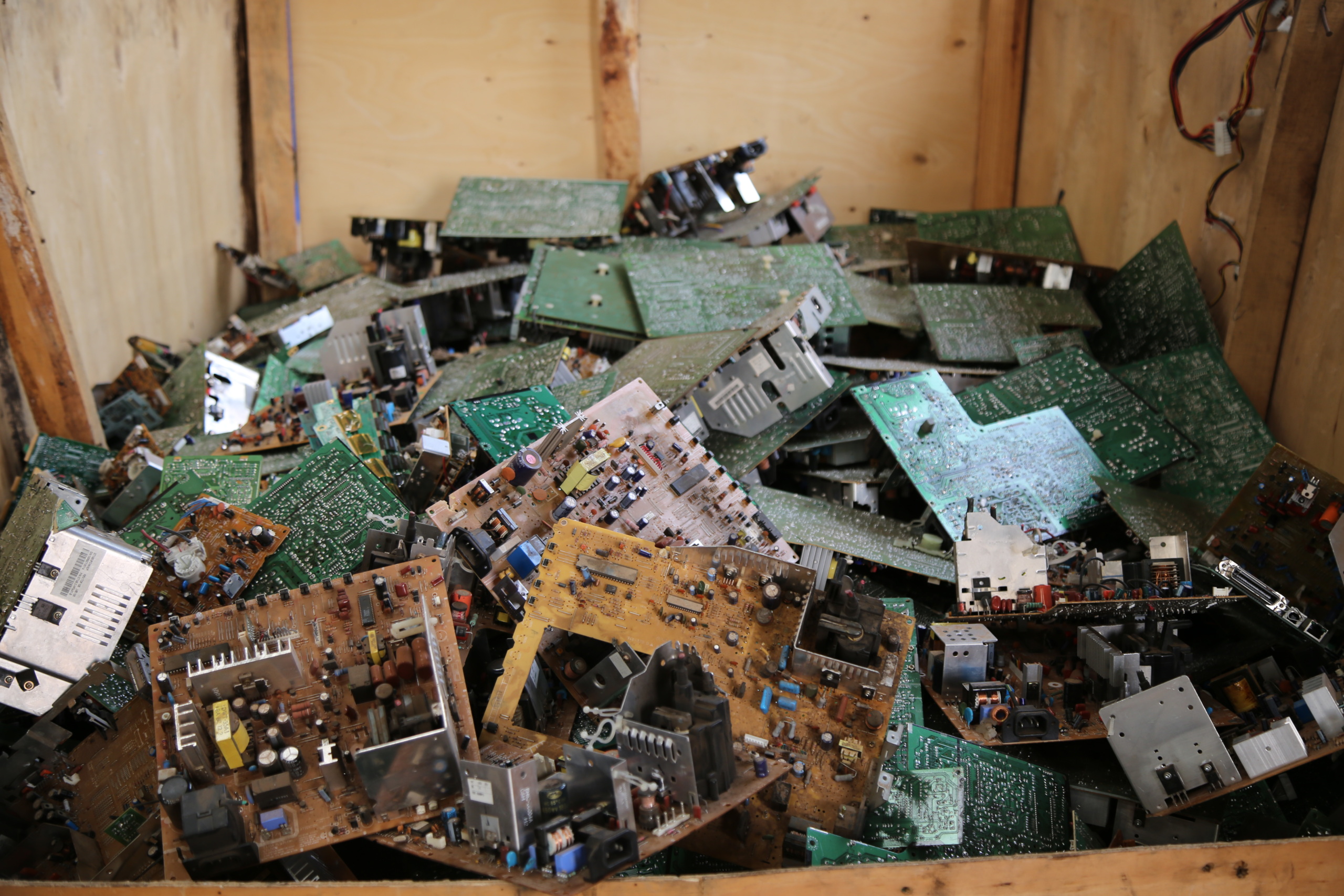
6 surprising facts from the UN’s 2024 electronic waste report

Apple AirPods are designed to die: Here’s what you should know
